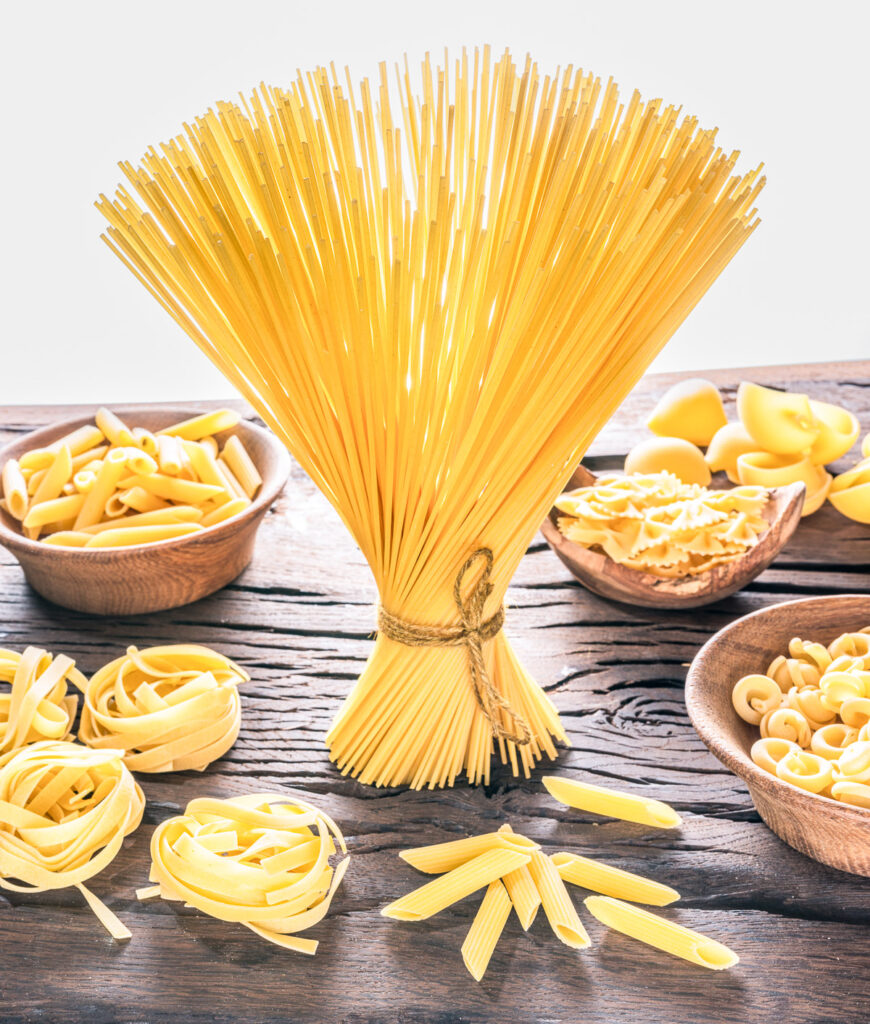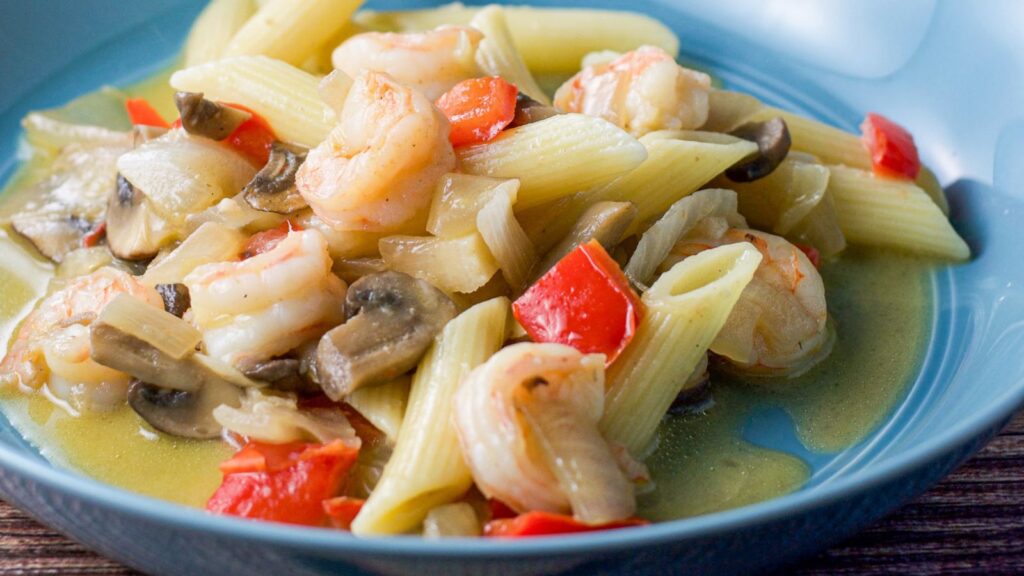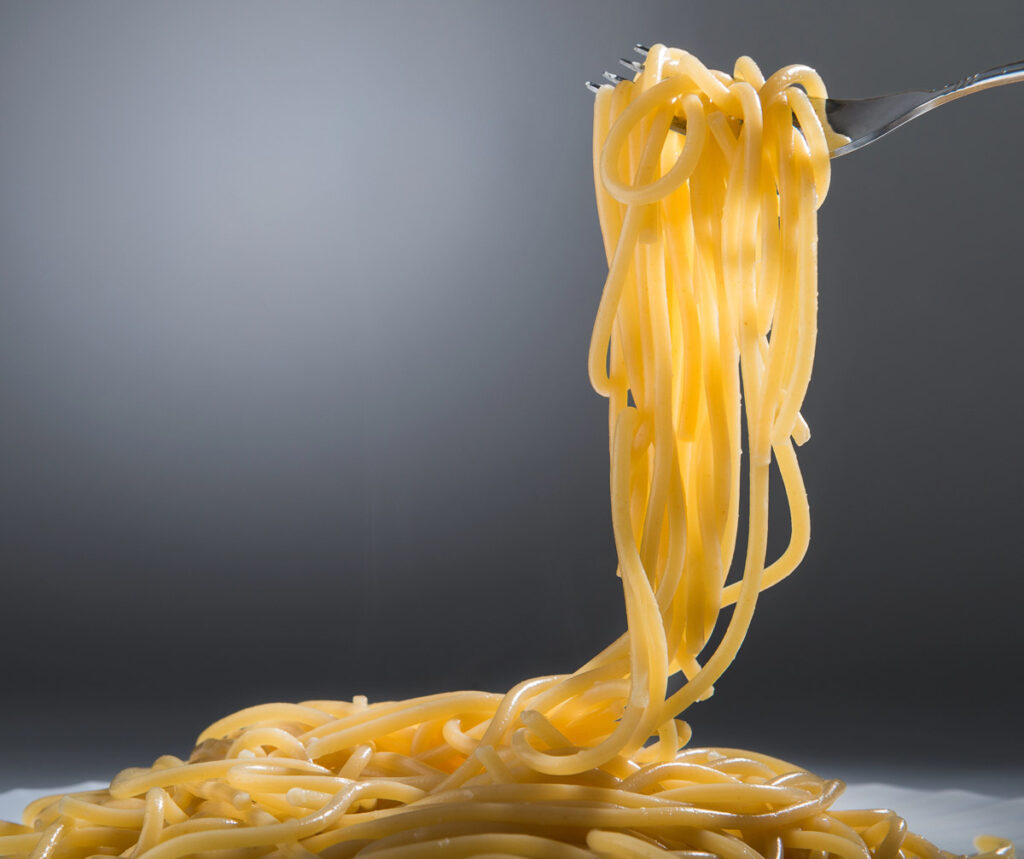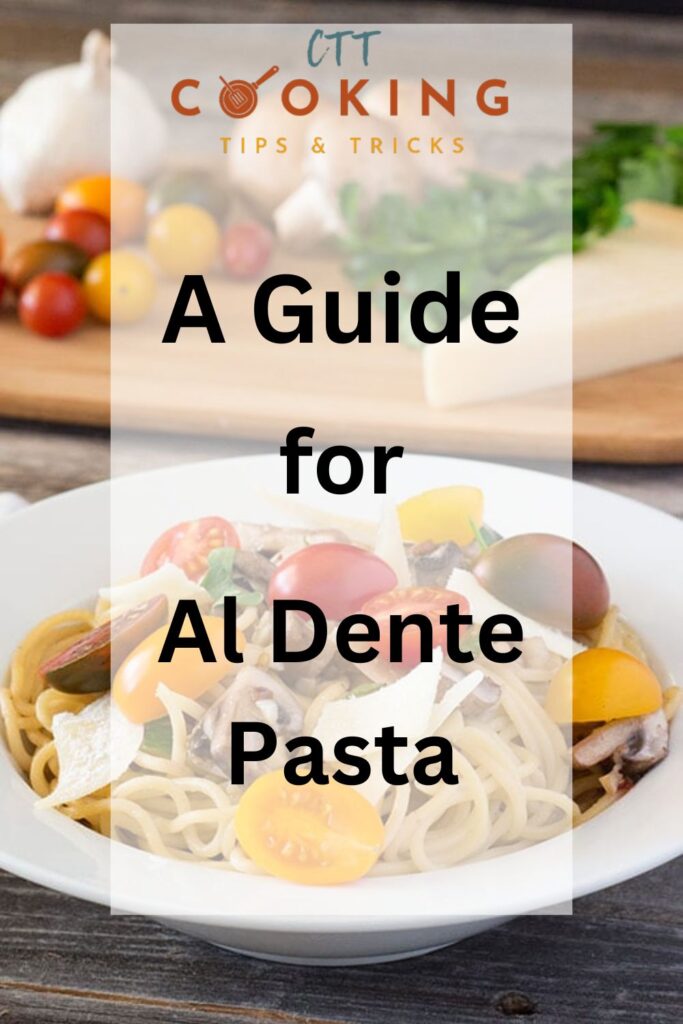Mastering ‘Al Dente’: The Art of Perfect Pasta
If you’ve ever ventured into the world of Italian cooking or found yourself perusing the pasta aisle, you’ve likely come across the term ‘al dente.’ This phrase can transform a simple pasta dish into an authentic Italian experience. But what exactly does ‘al dente’ mean, and why does it hold such significance in the culinary world?

Decoding ‘Al Dente’
The Meaning Behind the Term
‘Al dente’ is an Italian phrase that translates as ‘to the tooth.’ When pasta is cooked ‘al dente,’ it’s firm to the bite, considered the ideal texture for pasta in Italian cuisine. It’s the middle ground between a soft, fully cooked noodle and an uncooked, hard one.
Why ‘Al Dente’ is the Texture to Aim For
Cooking pasta ‘al dente’ is about more than just tradition. This preferred texture ensures the pasta is chewy, holds its shape well, and maintains a slightly resistant core. A proper ‘al dente’ texture allows the pasta to blend harmoniously with the sauce, making for a more satisfying dish.
Cooking Pasta ‘Al Dente’
Selecting the Right Pasta
Not all pasta is created equal when achieving ‘al dente.’ Thicker, robust pasta shapes like penne, rigatoni, and fettuccine tend to hold up better during cooking, making them ideal candidates for reaching that perfect ‘al dente’ texture.
The Timing Trick
Achieving ‘al dente’ pasta is a game of precision. It typically involves cooking the pasta for a slightly shorter period than the package’s instructions. The exact time can vary depending on the type and size of pasta. However, tasting the pasta a few minutes before the suggested cooking time is the best way to ensure you hit that ‘al dente’ sweet spot.

Want the recipe? Check out this copycat Ruby Tuesday pasta salad.
The Benefits of ‘Al Dente’ Pasta
Digestive Health and Glycemic Index
‘Al dente’ pasta isn’t just preferred for its taste and texture; it’s also a healthier option. Pasta cooked to ‘al dente’ has a lower glycemic index than more thoroughly cooked pasta. This means it has a smaller impact on blood sugar levels, which can be particularly beneficial for those monitoring their carbohydrate intake.
Nutrient Preservation
Cooking pasta to ‘al dente’ helps preserve its natural nutrients. Overcooking can lead to a loss of some vitamins and minerals, so ‘al dente’ not only delivers on taste but also on nutritional value.
Achieving Consistency with ‘Al Dente’

Want this shrimp scampi recipe? Click here.
Trial, Error, and Consistency
Mastering ‘al dente’ pasta can take practice. The key to consistency is attention to detail—knowing your pasta form, monitoring the pot, timing the boil, and being prepared to taste and assess the texture as you approach the ideal cooking time.
Common Mistakes to Avoid
Overcooking is the most common culprit when missing the mark for ‘al dente.’ Another mistake is not using enough water when boiling pasta, which can lead to uneven cooking. Lastly, adding oil to the water can create a slick on the pasta that prevents sauce from adhering properly—stick with salted water for the best results.

Understanding and mastering the concept of ‘al dente’ can elevate your pasta dishes from mundane to magnificent. By selecting the right type of pasta, timing the boil precisely, and embracing the cultural and health significance of ‘al dente,’ any home cook can serve up a dish that might just transport you to the cobblestone streets of Italy.
Ready to put your pasta prowess to the test? Grab your favorite pasta, set a timer, and prepare for a simple yet game-changing upgrade to your culinary repertoire. Buon appetito!
Edited by Christopher Benoit.
Photos by Dishes Delish, Pear Tree Kitchen, and Deposit Photos.
Transitioning from the theatrical stage with her BA in theater to the culinary world, Elaine Benoit exemplifies how passion can reshape a career. As the CEO of Dishes Delish, she skillfully combines health-conscious and soul-satisfying recipes with expertly mixed cocktails. Elaine also explores the world of food through her podcast "Dishing," sharing her gastronomic journeys. Further, as a co-owner of Food Blogger Help, she dedicates herself to mentoring emerging food bloggers, offering them the tools for success. Elaine's multifaceted background, from acting to culinary arts, positions her as a guiding light in the digital food sphere.

